Lydia Vivante’s trusty 1964 Singer Featherweight sewing machine is acting up. “You can see the stitches are a little loose, a little bumpy,” says Vivante, holding a piece of cloth with a short row of stitches she made just to demonstrate the problem. Daniel Cleary, a former clothing designer, looks at the sample, then puts his hands on the machine.
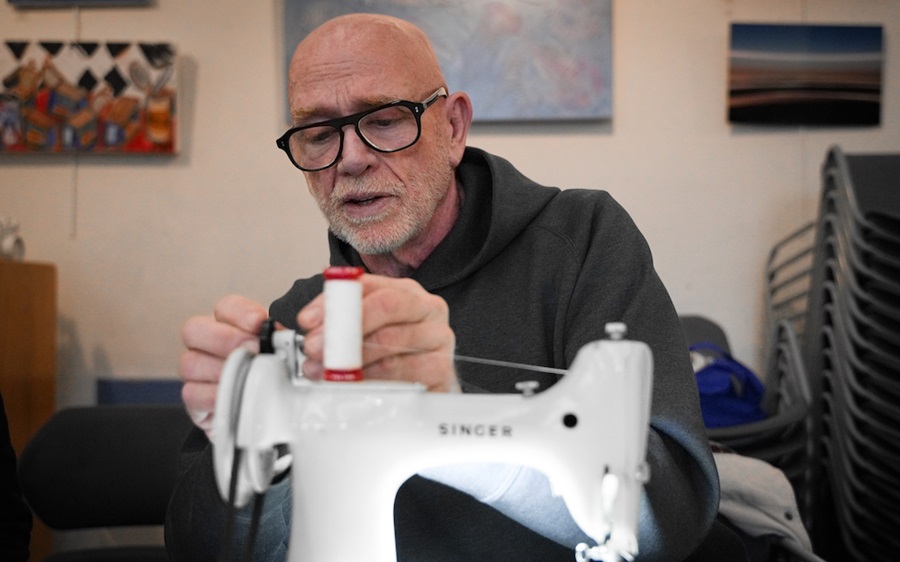
Cleary, who started sewing when he was eight and got into fixing machines soon after that, was one of a volunteer crew of “fixers” at the Wellfleet Public Library’s annual Fix-It Clinic on Feb. 3 — an event that promotes repair over replacement.
At folding tables spread out across the library’s meeting room, which doubles as a gallery space, tools were out and tinkerers busy with an array of old objects.
“I’m fixing the tension,” Cleary says, pulling a piece of thread out of Vivante’s Featherweight. “This is a very simple machine. It’s tiny and powerful.” He grabs a small screwdriver and tweaks a minuscule metal spindle. With that, the machine is fixed; the stitches come out smooth and even again.
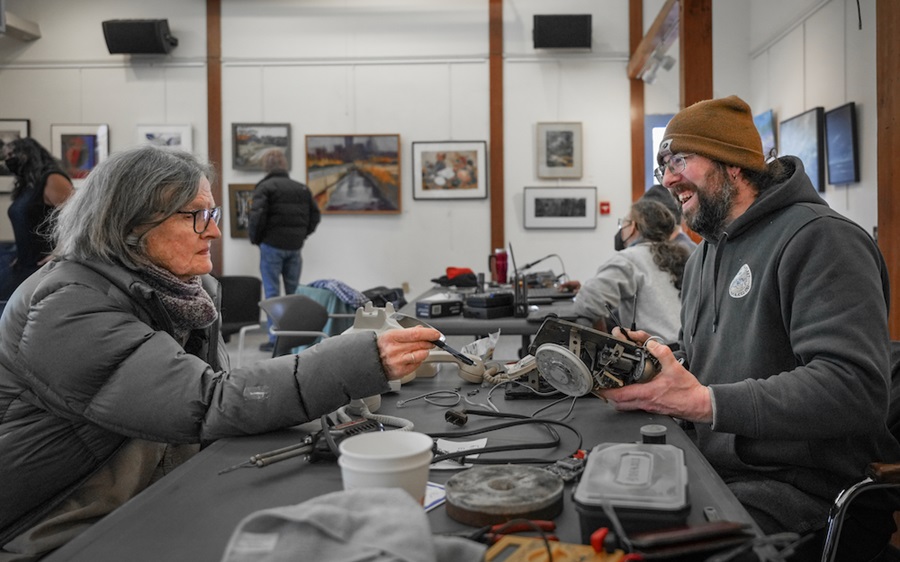
At the table next to Vivante and Cleary, Michael Cicale is performing surgery on some old rotary phones Helen Miranda Wilson found at the dump. He inspects the phones’ bells — they ring gently as he taps them with his screwdrivers. “I love the way they sound,” says Wilson. “I mean, they’re real bells. I can hear the phone ring anywhere in the house.”
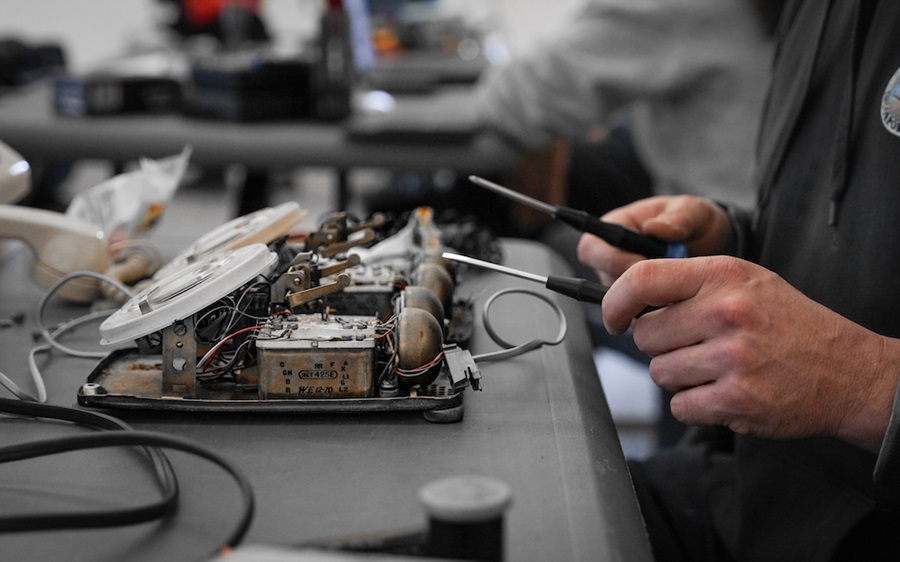
“This thing needs a dial tone,” says Cicale to Wilson. “But that’s an internal thing that’s beyond my knowledge,” he adds, sounding a little disappointed. She thanks him for his effort, then asks about the other phone. “This one just needs a main power jack,” says Cicale optimistically. “I’ll find one at the dump from another phone and just add it to this.”
It so happens that Cicale is the foreman at the Wellfleet transfer station. “This man is the shining light of recycling,” says Wilson.
“I run the best dump in town,” he laughs.
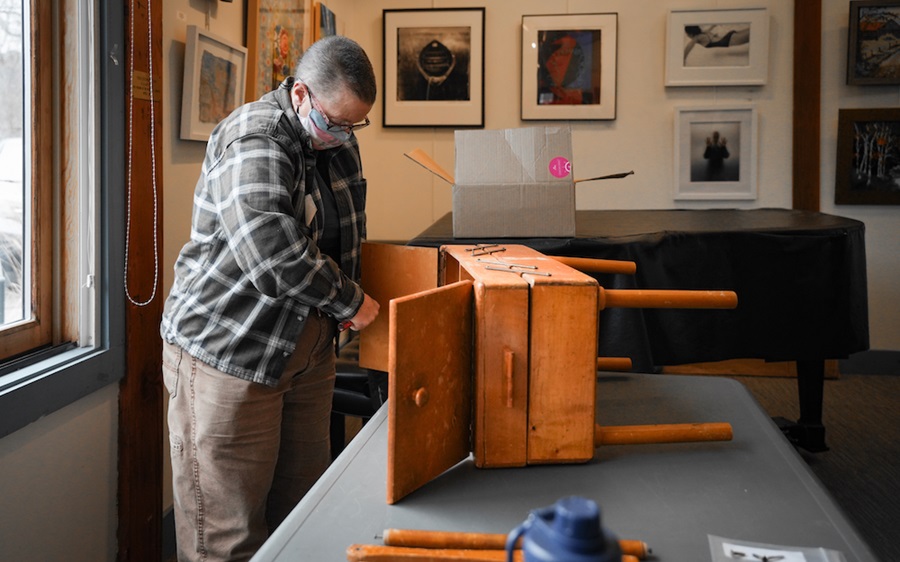
Over by a grand piano on the opposite side of the room, Jody Johnson is patiently screwing a small wooden knob onto the door of Christine Shreves’s antique sewing box. With focus and precision, Johnson shifts her attention from the knob to the metal brackets on the box’s side, carefully screwing the metal pegs into place.
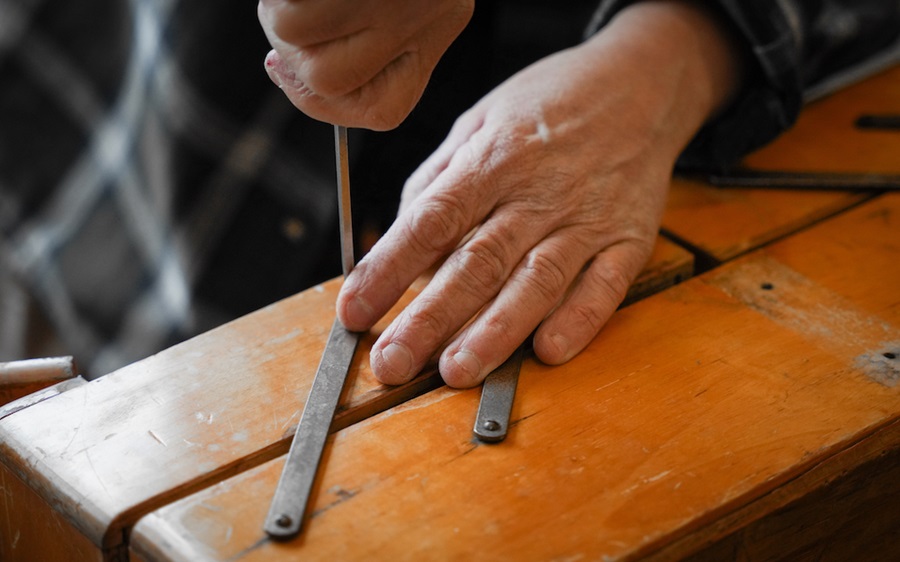
“The handle is broken, so I’m not sure if I’m going to be able to carry it, but I can make do,” says Shreves, gesturing toward a long piece of wood that appears to have been chewed up by a dog. “I can make you one that’ll work,” says Johnson. “Really?” says Shreves, relieved.
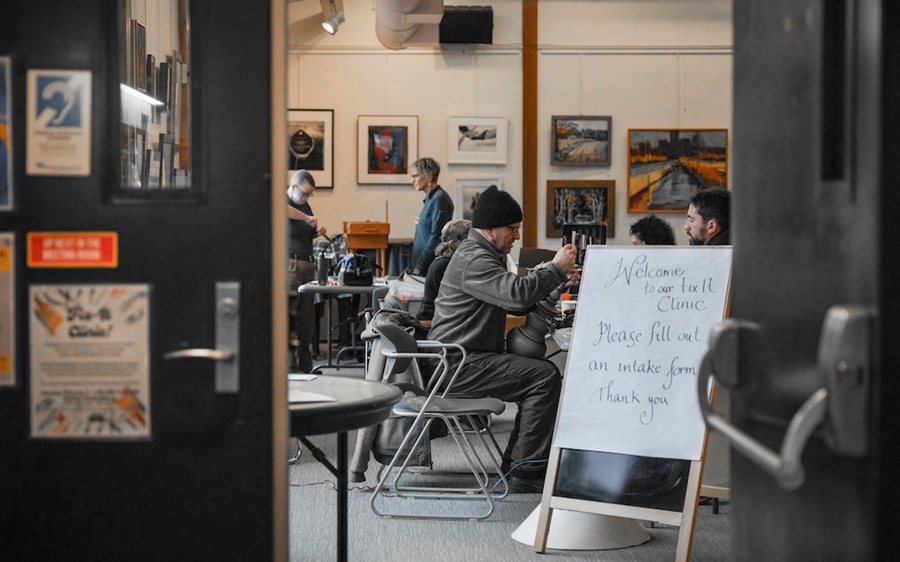
As they give the wooden box another once-over, something near the door catches Shreves’s eye. It’s someone heading in with a lamp. Johnson looks up from her work: repurposing old lamps is one of her specialties.
“It’s nice to be able to help people out with this stuff,” Cleary says.



